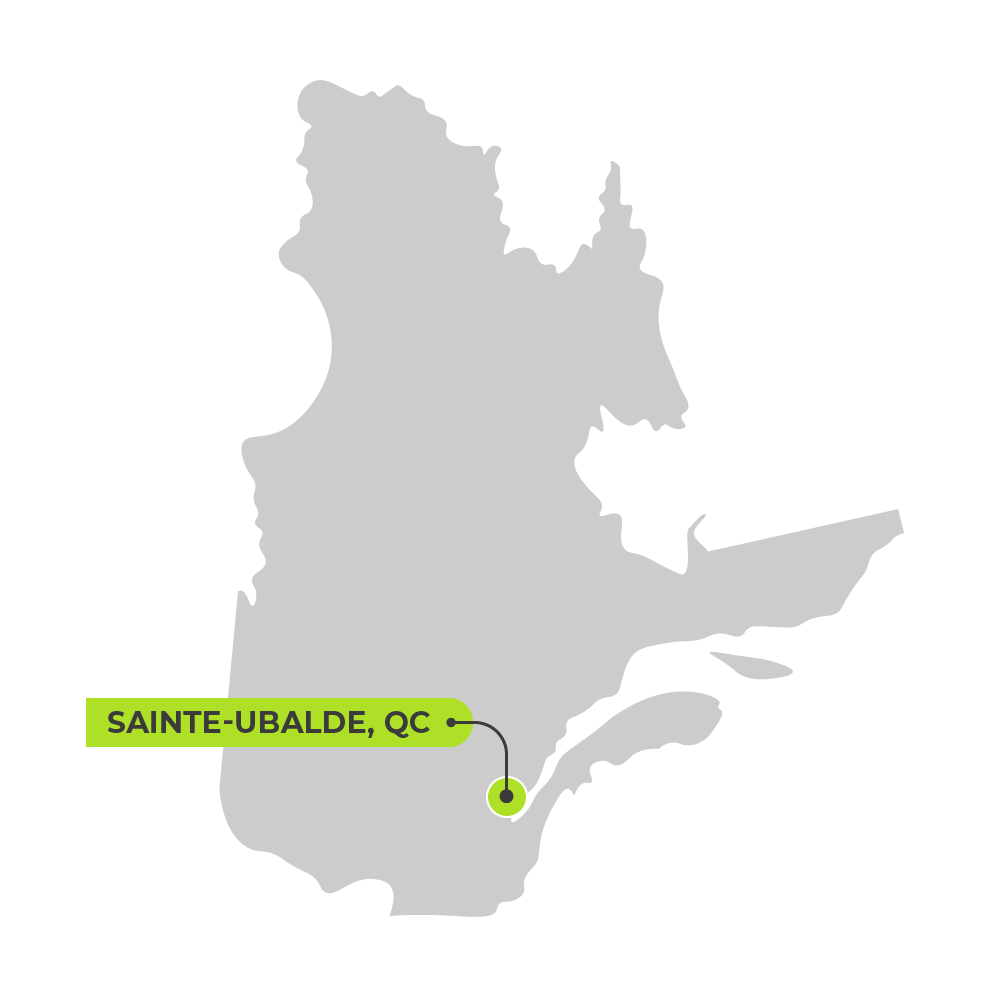
The Town of Saint-Ubalde, QC, used a local resource—biowaste—to largely replace fossil fuels and electricity as a source of heat.
Results

218 tonnes
of CO2e reduced per year

75,534 litres
of heating oil reduced

40%
of heating costs reduced for all buildings
In 2012, Saint-Ubalde, a small rural town in Quebec, launched a project to convert biowaste into biofuel to heat several municipal and institutional buildings.
The high cost of oil heating and the town’s desire to reduce its greenhouse gas (GHG) emissions inspired the municipality to consider an alternative heating source. Some of the waste from the town’s forestry sector was being converted into other products, but what remained held great potential as a sustainable fuel supply.
The town decided to connect several buildings through underground pipes to one biofuel-based boiler heating system: the church, library, community centre, post office, town hall, elementary school, arena and pharmacy.


The first five buildings were connected to the new heating system in 2014. A dryer system was built to dry the biowaste for the heating system. The town installed a backup oil-powered boiler to cover peak demand in cold weather and give the biomass boiler a break for maintenance.
As with many best-laid plans, a couple of snags kept the town on its toes. It soon became clear that the heating requirements of the school and arena, which are located at the far end of the two-kilometre network, did not justify the construction costs to connect them. The pharmacy also underwent major renovations that improved its energy efficiency, reducing the potential impact of connecting it to the system. The town redirected its efforts to where they were most needed, setting up a second system to supply heat to offices, a mechanic shop and a workshop in 2015.
The town’s flexibility served it well throughout the project. While little information was initially available on implementing such a system and heating with biofuels, the town kept an open mind as new information, techniques and equipment became available, learning and adapting along the way.
The project has displaced fossil fuels and electricity for 95.1% of the energy used to heat the town’s municipal and institutional buildings. It has dramatically reduced the town’s reliance on these resources and reduced the town’s GHGs by about 133 tonnes per year.
The project has also increased residents’ awareness of the value of sustainability and sparked pride in the community. Local jobs have also been created, attracting skilled young workers to the area. Saint-Ubalde has become an outstanding example of rural independence and innovation with a project that can easily be replicated in surrounding communities and in other parts of Canada.
We have a local resource, the raw material, which is biomass. We need to encourage projects that use biomass—it’s money that stays here.”
—Pierre Saint-Germain, Mayor of Saint-Ubalde
Sources
L'érablière Savard et Douville Saint-Ubalde passe du mazout à la biomasse
Want to explore all GMF-funded projects? Check out the Projects Database for a complete overview of funded projects and get inspired by municipalities of all sizes, across Canada.

